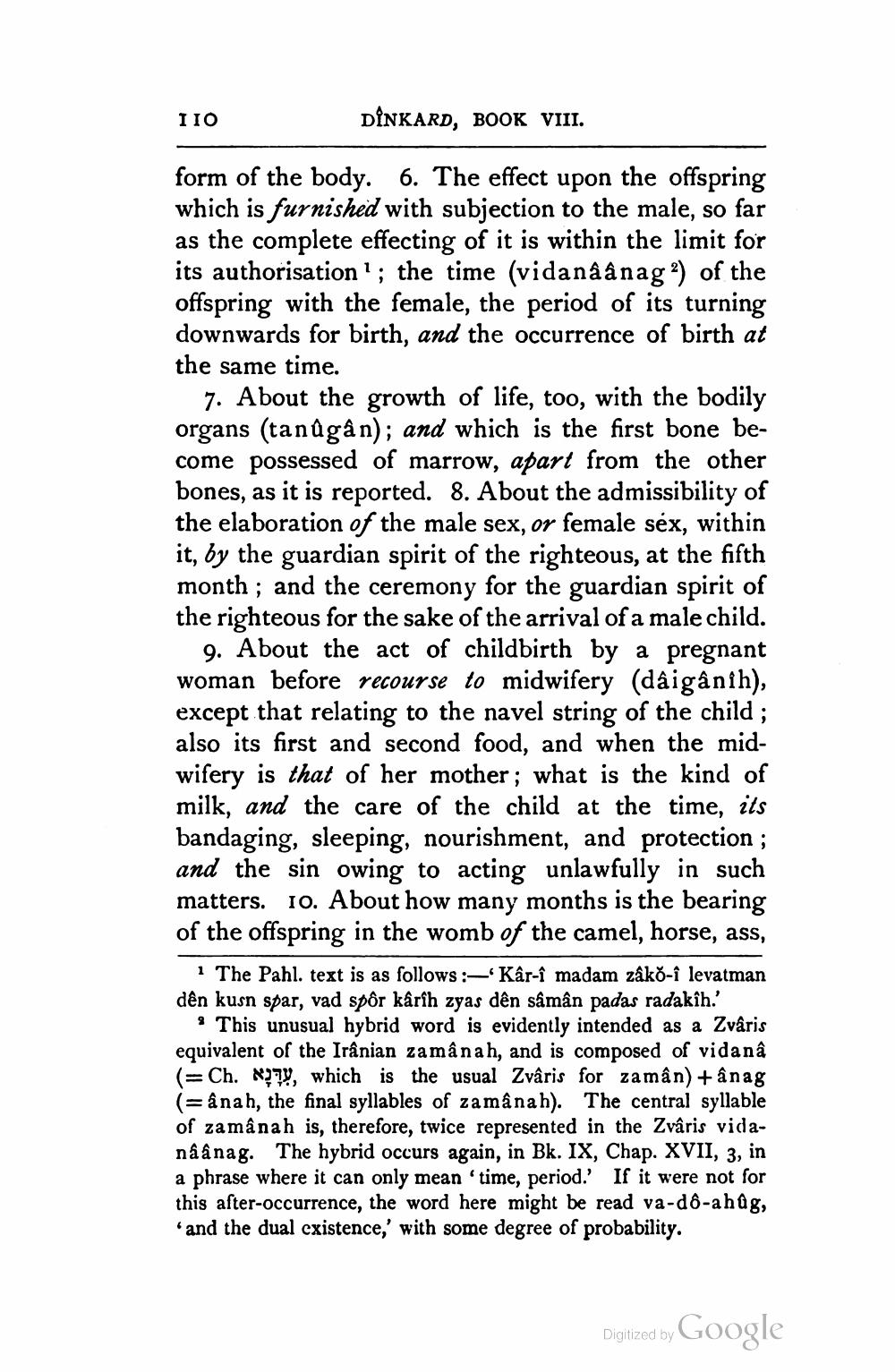________________
DINKARD, BOOK VIII.
form of the body. 6. The effect upon the offspring which is furnished with subjection to the male, so far as the complete effecting of it is within the limit for its authorisation'; the time (vidanâânag 2) of the offspring with the female, the period of its turning downwards for birth, and the occurrence of birth at the same time.
IIO
7. About the growth of life, too, with the bodily organs (tanûgân); and which is the first bone become possessed of marrow, apart from the other bones, as it is reported. 8. About the admissibility of the elaboration of the male sex, or female sex, within it, by the guardian spirit of the righteous, at the fifth month; and the ceremony for the guardian spirit of the righteous for the sake of the arrival of a male child.
9. About the act of childbirth by a pregnant woman before recourse to midwifery (dâigânih), except that relating to the navel string of the child; also its first and second food, and when the midwifery is that of her mother; what is the kind of milk, and the care of the child at the time, its bandaging, sleeping, nourishment, and protection; and the sin owing to acting unlawfully in such matters. 10. About how many months is the bearing of the offspring in the womb of the camel, horse, ass,
1 The Pahl. text is as follows:- Kâr-î madam zâko-î levatman dên kusn spar, vad spôr kârîh zyas dên sâmân padas radakîh.'
This unusual hybrid word is evidently intended as a Zvâris equivalent of the Irânian zamânah, and is composed of vidanâ (= Ch. 8, which is the usual Zvâris for zamân) +ânag (=ânah, the final syllables of zamânah). The central syllable of zamânah is, therefore, twice represented in the Zvâris vidanâânag. The hybrid occurs again, in Bk. IX, Chap. XVII, 3, in a phrase where it can only mean 'time, period.' If it were not for this after-occurrence, the word here might be read va-dô-ahug, 'and the dual existence,' with some degree of probability.
Digitized by
Google




